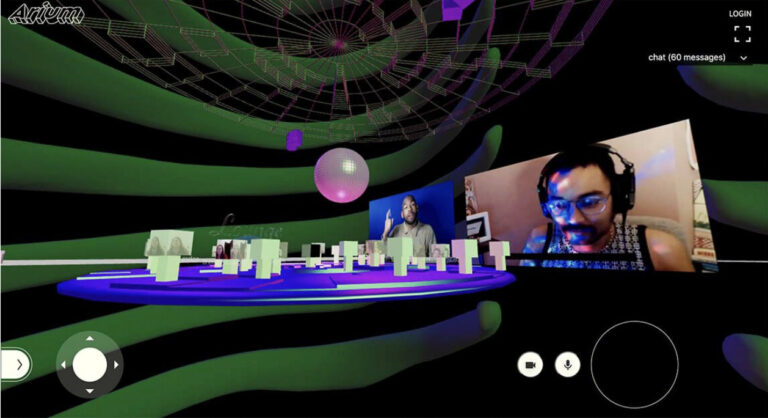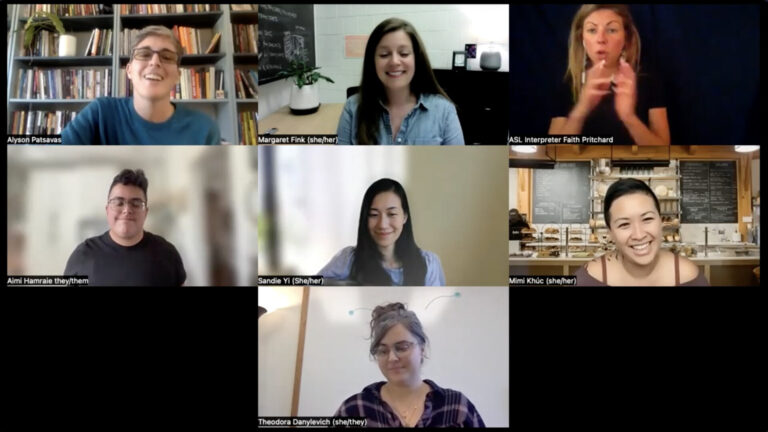Remote Access is a disability nightlife event informed by disability history, technology, and artistry. At the start of the COVID-19 pandemic, a collective of disabled artists and designers created an event to showcase how disabled people often participate in social life from our homes and beds. This contribution offers a living archive of the party and its evolution, as the planners created protocols for collective access through methodologies such as participatory audio description and live description of musical sound. We discuss how each new event offered opportunities for designing new practices based on disabled knowledge and expertise. As a result, the series of Remote Access nightlife parties became an ongoing opportunity to develop iterative accessibility protocols and community standards for remote/digital participation.
Articles by Aimi Hamraie
Aimi Hamraie is Associate Professor of Medicine, Health, & Society and American Studies at Vanderbilt University and director of the Critical Design Lab. Hamraie is author of Building Access: Universal Design and the Politics of Disability (University of Minnesota Press, 2017) and host of the Contra* podcast on disability and design. They are a member of the United States Access Board and a 2022 United States Artists Fellow. With Cassandra Hartblay and Jarah Moesch, Hamraie co-curated #CripRitual, a multi-site exhibition of twenty-five disabled artists at the Tangled Arts and Disability and Doris McCarthy Galleries in Toronto. With Kelly Fritsch, Mara Mills, and David Serlin, Hamraie co-edited a special issue of Catalyst: feminism theory technoscience on “crip technoscience.” Hamraie’s interdisciplinary academic research focuses on accessibility and built environments. Trained as a feminist disability scholar, they contribute to the fields of critical disability studies, science and technology studies, critical design and urbanism, critical race theory, and the environmental humanities. Hamraie’s research is funded by the National Science Foundation, the Social Science Research Council, the Smithsonian Institution, the Mellon Foundation, the Graham Foundation for Advanced Studies in the Arts, and the National Humanities Alliance.
Crip Pandemic Conversation: Textures, Tools, and Recipes
“Crip Pandemic Conversation: Textures, Tools, and Recipes,” brings together experts whose scholarship, curation, organizing and artistic work centers crip insights and creativity to reflect on the work that “Crip Pandemic Life: A Tapestry” undertakes. Margaret Fink, Aimi Hamraie, Mimi Khúc, and Sandie Yi each discuss how the pandemic impacted their work, and they join section co-editors Alyson Patsavas and Theodora Danylevich in discussing the tapestry’s content. Their conversation pulls out some of the most salient threads of the work: smallness, grief, care, community-building, tenderness, and pandemic coping tools. “Crip Pandemic Conversation: Textures, Tools, and Recipes” includes an unedited video recording of a Zoom roundtable session, a lightly edited text version of the conversation, and a glossary of terms that appear in the discussion, as a contextualizing access tool located at the bottom of the document. In choosing a preferred way of engaging with the content, we invite readers to consider, as the roundtable participants themselves do, how access (transcripts, zoom recordings, and captions) produces its own caring archive and knowledge-making practices.

